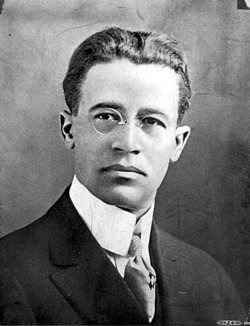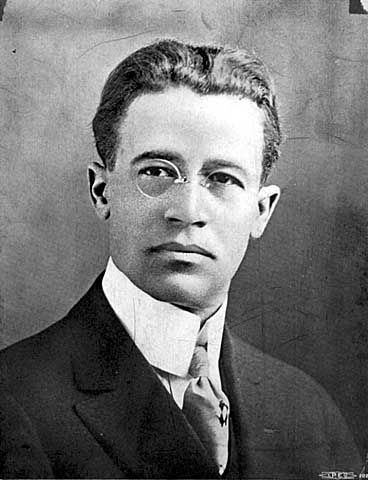Mr. Francis graduated in 1904 from the St. Paul College of Law (currently William Mitchell College of Law), in St. Paul Minnesota. Upon graduation Mr. Francis was hired by the Northern and Pacific railroad, first as a stenographer and later became a lawyer in their legal department. In 1906 he was unsuccessful in a bid for a place on the St. Paul City Council. In 1912 he entered private practice.
In 1920, he was president-elector at the Republican State Convention. Francis and his wife were instrumental in getting an anti-lynching law passed in the Minnesota State Senate in the 1920s.
His deep concern about the fate of his people is summed up in these words: “The solution of the whole problem…is simple justice; a recognition of the fact that the rights of the humblest citizen are as worthy of protection as those of the highest.”
Upon their move from a home in the Rondo neighborhood of St. Paul to the Groveland Park area, William and Nellie faced opposition from others living in the neighborhood. Initially a group offered to purchase the home from them. When the Francises did not move, a group began to march in front of their home. The couple also received threatening letters and phone calls, along with two crosses being burned on their lawn.
In 1927 President Calvin Coolidge appointed Mr. Francis consul general to Liberia. Mr. Francis died in Liberia due to yellow fever. At the time of his death in Monrovia, Africa in 1929, Secretary of State Henry Stimson referred to Mr. Francis as one of the county’s “most able and trusted public servants.”
The body of Mr. Francis was returned to the United States where he is buried with his wife in Greenwood Cemetery in Nashville, Tennessee.
Mr. Francis graduated in 1904 from the St. Paul College of Law (currently William Mitchell College of Law), in St. Paul Minnesota. Upon graduation Mr. Francis was hired by the Northern and Pacific railroad, first as a stenographer and later became a lawyer in their legal department. In 1906 he was unsuccessful in a bid for a place on the St. Paul City Council. In 1912 he entered private practice.
In 1920, he was president-elector at the Republican State Convention. Francis and his wife were instrumental in getting an anti-lynching law passed in the Minnesota State Senate in the 1920s.
His deep concern about the fate of his people is summed up in these words: “The solution of the whole problem…is simple justice; a recognition of the fact that the rights of the humblest citizen are as worthy of protection as those of the highest.”
Upon their move from a home in the Rondo neighborhood of St. Paul to the Groveland Park area, William and Nellie faced opposition from others living in the neighborhood. Initially a group offered to purchase the home from them. When the Francises did not move, a group began to march in front of their home. The couple also received threatening letters and phone calls, along with two crosses being burned on their lawn.
In 1927 President Calvin Coolidge appointed Mr. Francis consul general to Liberia. Mr. Francis died in Liberia due to yellow fever. At the time of his death in Monrovia, Africa in 1929, Secretary of State Henry Stimson referred to Mr. Francis as one of the county’s “most able and trusted public servants.”
The body of Mr. Francis was returned to the United States where he is buried with his wife in Greenwood Cemetery in Nashville, Tennessee.
Family Members
Sponsored by Ancestry
Advertisement
Advertisement







